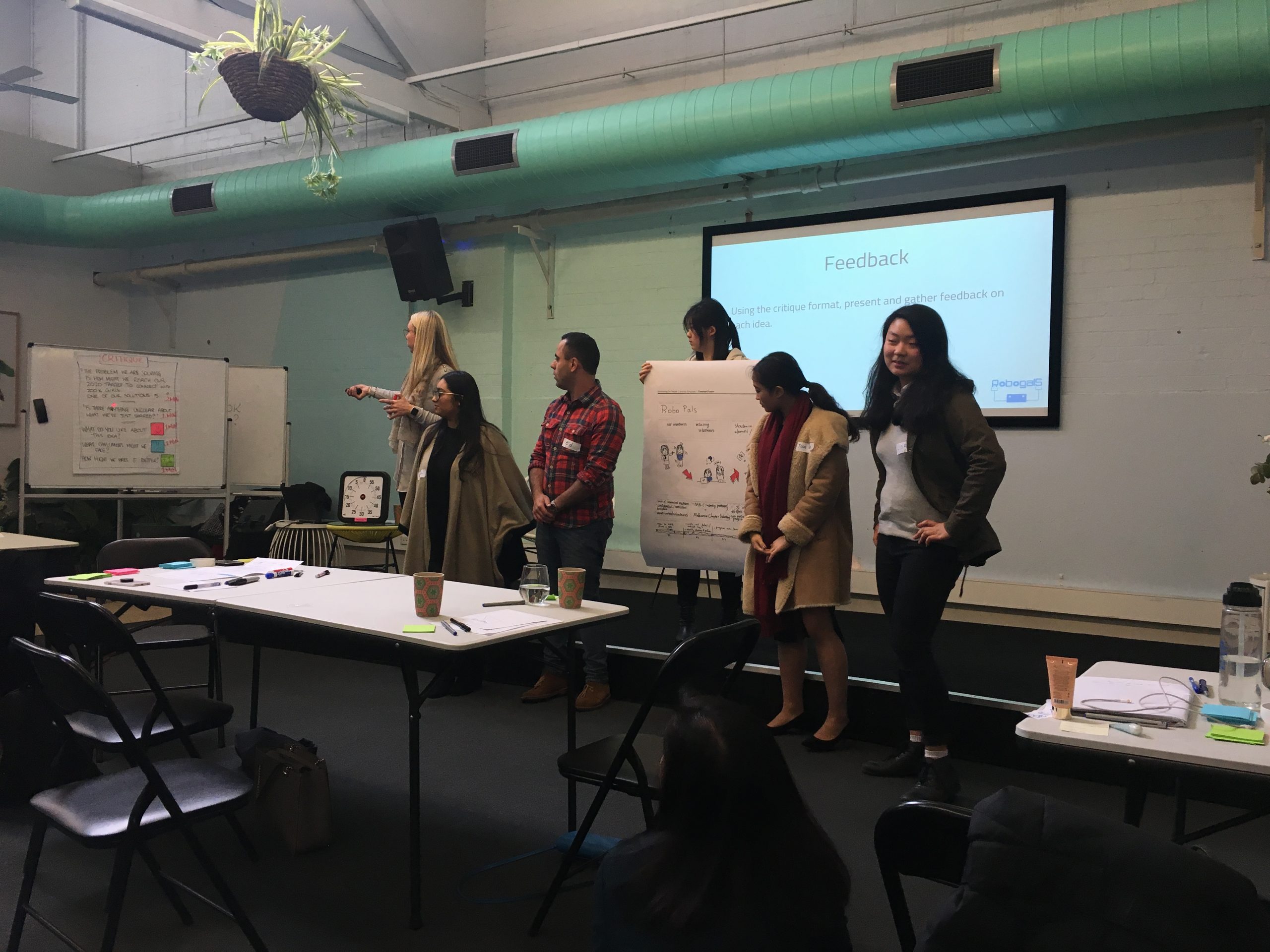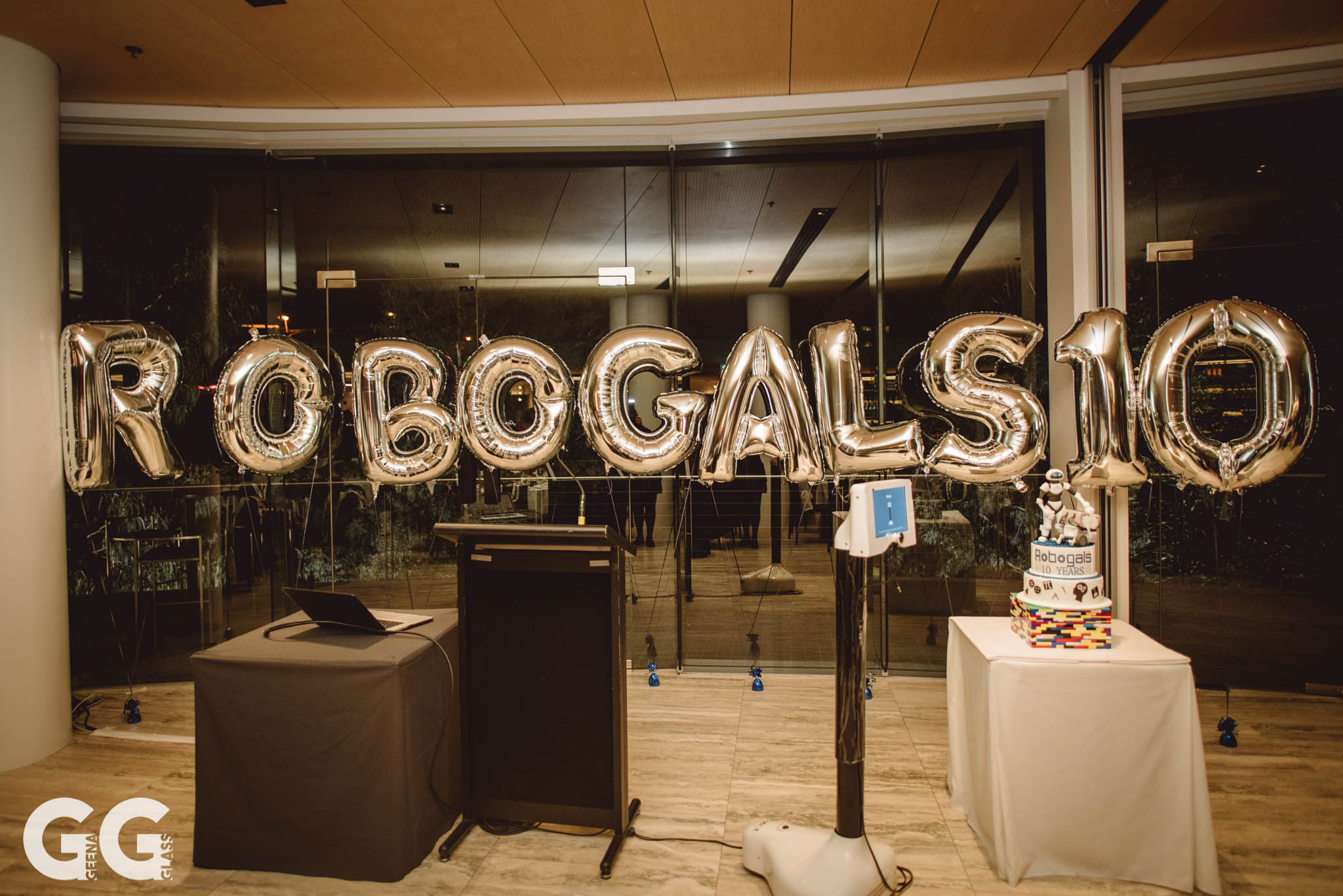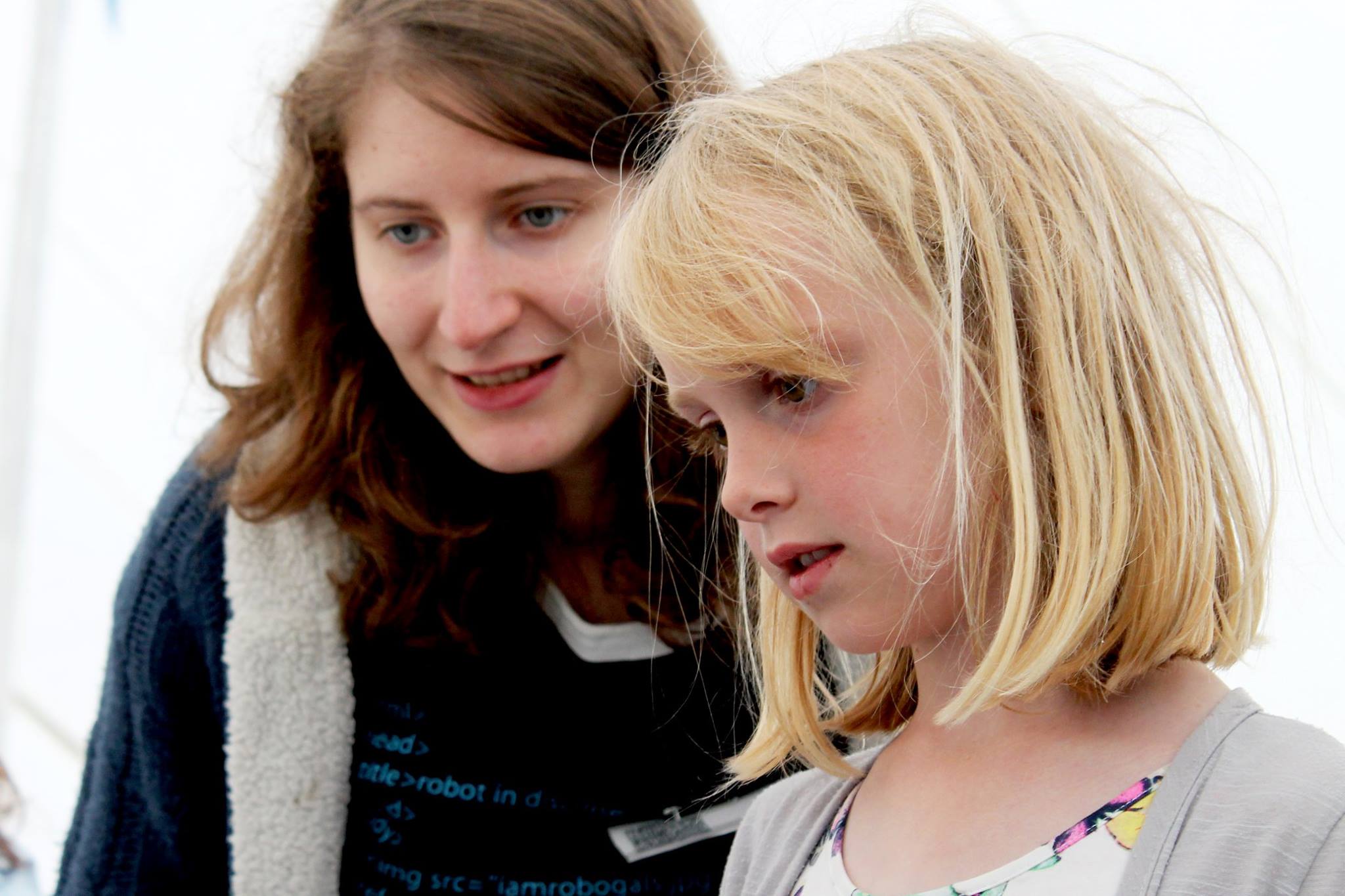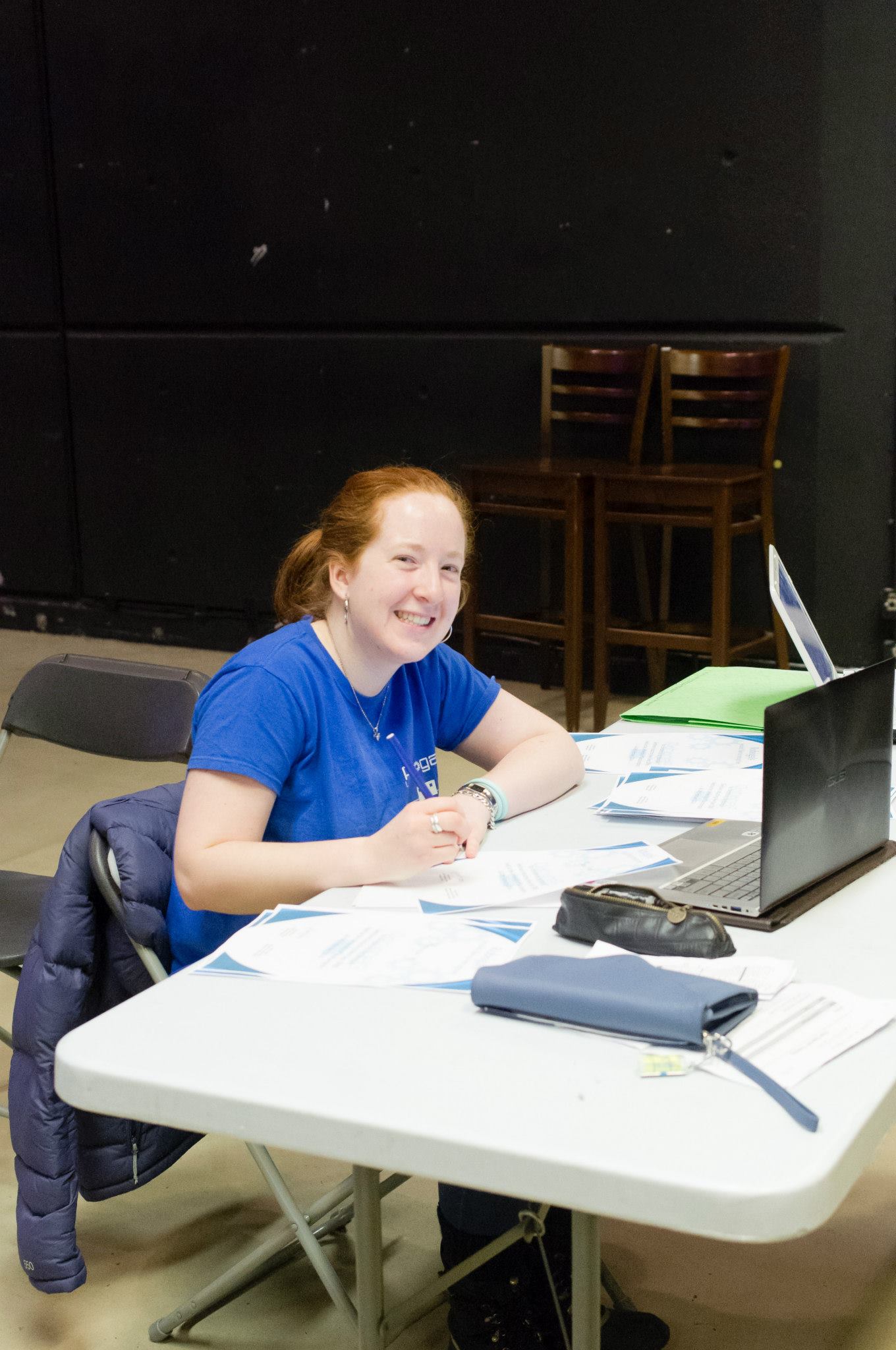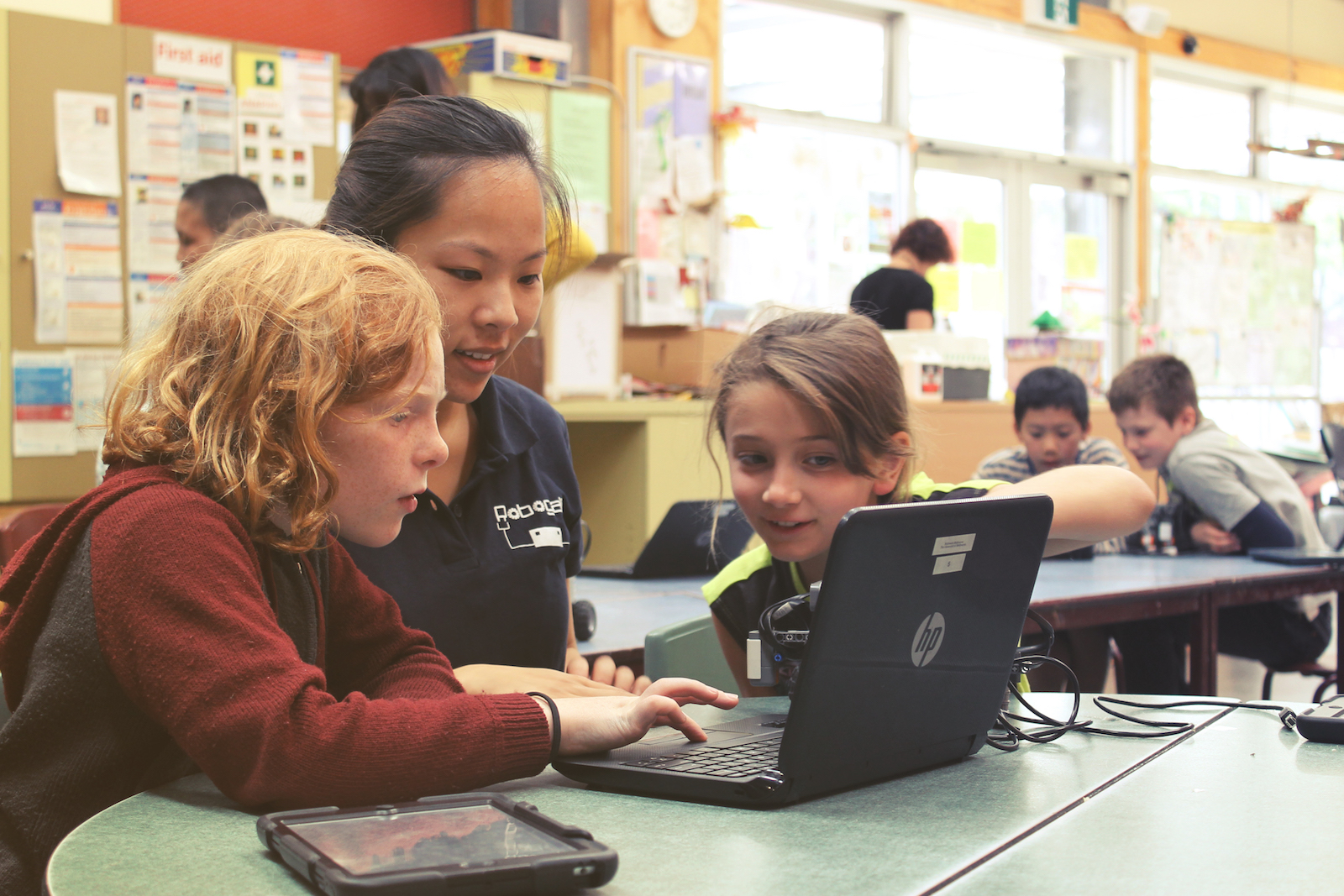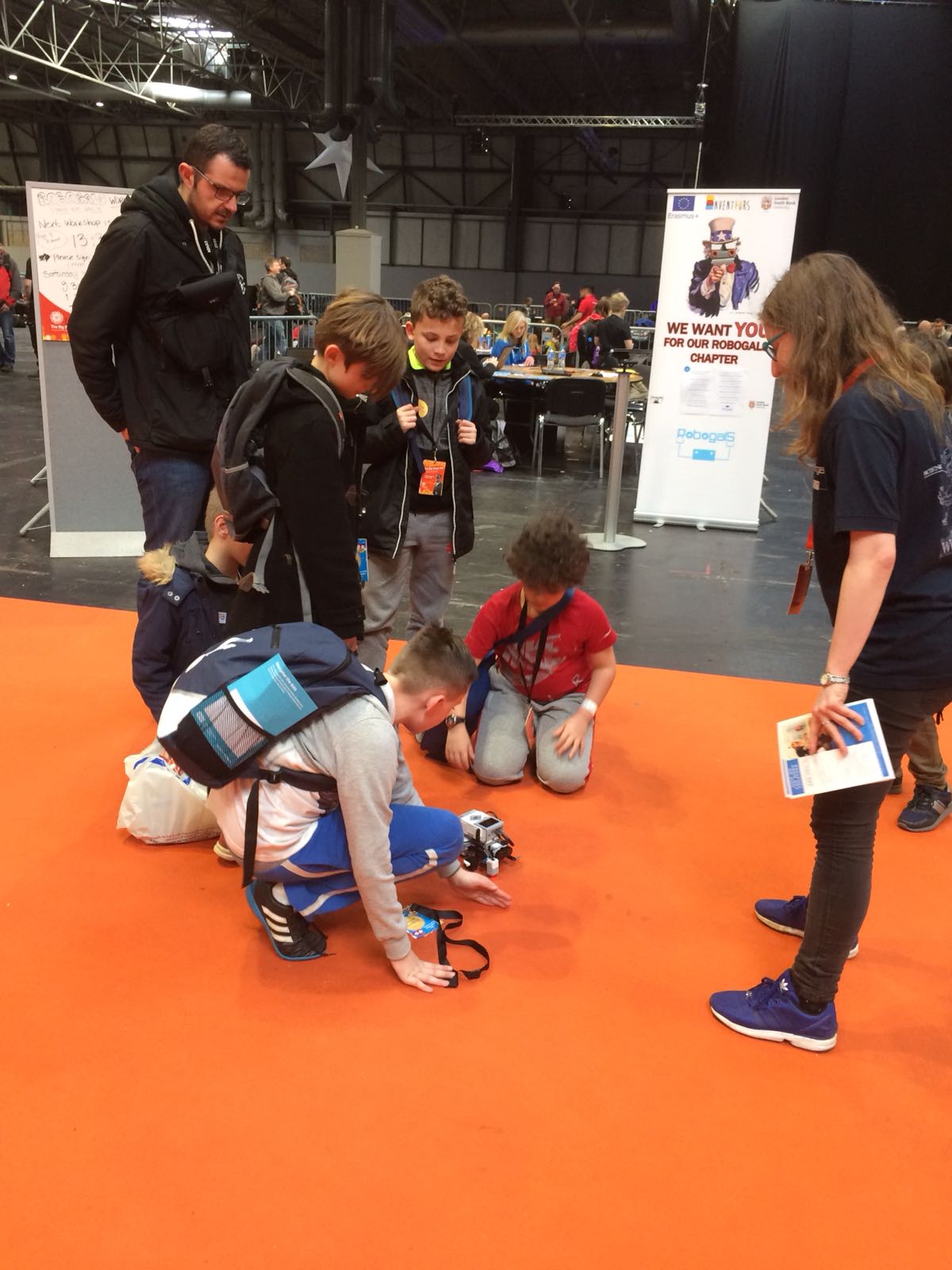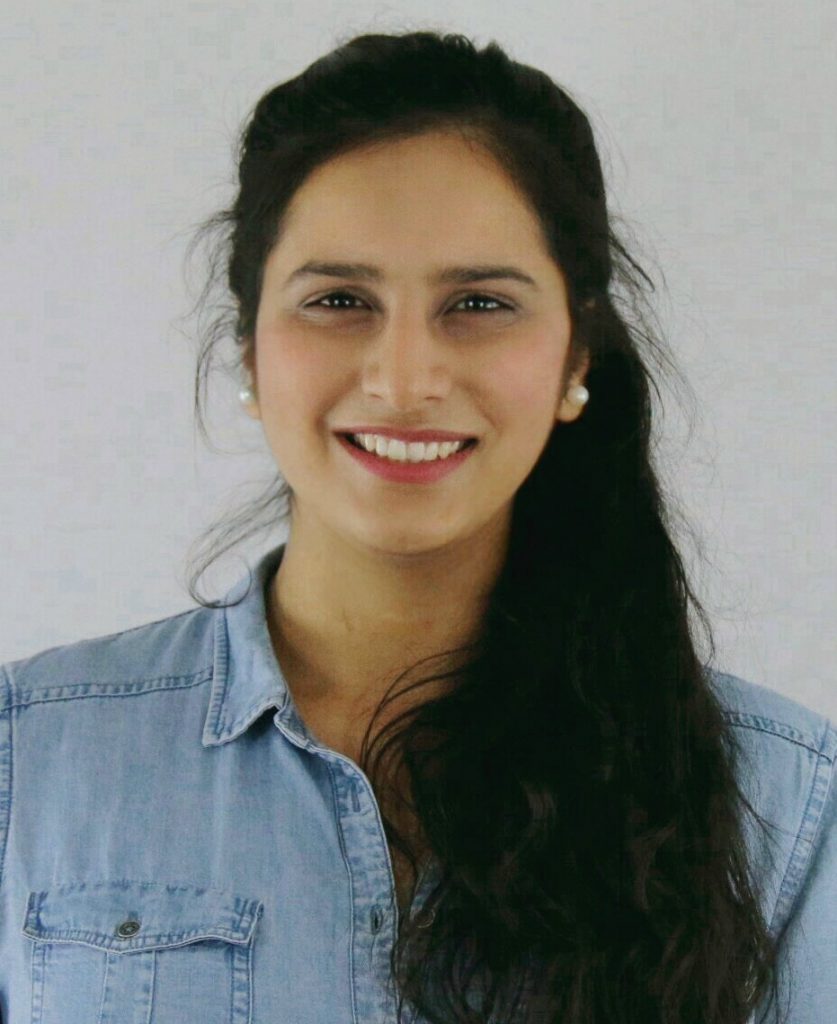This blog is part of our #PeopleOfRobogals series. This series highlights our volunteers from across the organisation, from our chapters to our leadership team and board members. Robogals is made possible by our amazing volunteers from across the globe, ranging from students to professionals of all genders, ages and backgrounds. We come from a wide range expertise from engineering to law to commerce and are all united under the cause of gender equity in engineering and technology. We sat down with a past president of the Robogals Wellesley chapter, Isabelle Li, to learn about her time at Robogals as well as her experiences working, studying and volunteering in the STEM fields. How did you become an undergraduate researcher at Wellesley? I wasn’t aware of how widely applicable scientific research could be until I took my first computer science class at Wellesley and had the opportunity to participate in a hackathon. Luckily, Wellesley has an amazing summer research program and wide range of research projects that students are encouraged to apply for. Last summer I had the chance to work with Professor Lyn Turbak, a computer science professor at Wellesley, and did some data analysis work on users of a blocks programming language called App Inventor. It was an amazing experience and I got to present my work at a blocks language conference in October which was a nerve-wracking experience. The research process wasn’t what I expected at all, we were always discovering new questions to explore and pivoting the research so there was never really an end-point for our work. Interning as a software engineer at Facebook must be fun! What was your experience like? I’ve had a really great time interning at Facebook this summer! I actually have two more weeks left so I’m still trying to finish up and ship the projects I worked on. I’ve been working as a client-side engineer on the Instagram Business Engagement team. Since I’ve never worked at a large company or done software engineering, it’s been an enlightening and learning experience. The best part about being a software engineer at Facebook is the impact I’ve had. You always hear about Facebook’s motto – “move fast” but I never expected that it would be so fast-paced. I’ve also met many amazing interns and have a great team, so I’m very happy with my time at Facebook. Where do you see your career taking you after college? I am honestly not quite sure what I want to do after college yet. After my internship experience this summer, I realized that I enjoy coding but would like to work more with different partners within the company and clients. I am thinking about working as a Software Engineer for a couple of years before switching to a management role like Engineering Manager or Product Manager. I am also really interested in exploring careers that are an intersection of another field and tech. For example, I am taking an information policy class next year – the intersection of law and tech – so if I end up enjoying that class, I might consider law school or tech policy. There’s definitely a lot of possible careers that I can pursue, but I’m excited to develop my career into something that will be high-impact. How does volunteering at Robogals help you explore technology’s role in education? I think volunteering at Robogals really introduced me to the idea of combining tech and education. If you asked me in my first year of college what software engineering or tech looks like, I would think of companies like Google or just people sitting at a table coding all day. My volunteer work as well as my exploration of this field have taught me that there is so much impactful work that can be done. Tech plays a huge role in education by making the knowledge accessible to people. I think our Robogals workshops really help with that because it’s hard to get interested in tech and engineering if you don’t even know much about it or that you could be good at it. We’re exposing these concepts and technology to girls at an early age so that they can get a headstart in exploring these fields. What makes the Wellesley Robogals Chapter different from other, similar University initiatives on campus? I think Wellesley Robogals is special and different from the other chapters on campus because we develop our own specialized curriculum. A lot of the other groups, they either follow a pre-set curriculum that was developed by their leadership team or they create a quite general curriculum, just introducing basic science concepts. Our workshops are more personalised to the students that we work with around Wellesley, and cover lots of topics such as coding or circuits, that aren’t usually introduced until high school. We also focus on specific tools that help us demonstrate these concepts, such as Scratch (https://scratch.mit.edu/) , a website that teaches kids to program their own interactive stories, games, and animation, or technology toy companies such as littleBits (https://www.littlebits.com/) , who produce kits for kids with colour-coded, electronic building blocks. Our workshops are also girls-only, meaning that we create a special space for young students to explore tech and engineering.
Robogals’ Design Thinking Day, “how will we reach 200,000 by 2020”?
By 2020, Robogals is aiming to reach 200,000 girls worldwide. To ideate new and innovative solutions to reach this target, Robogals invited various stakeholder groups, both internal and external to the organisation, to participate in the inaugural Robogals Design Thinking Day at One Roof Melbourne. The half day workshop saw over 30 volunteers, supporters and partners come together. Lead facilitator Samantha Hinds, Experimentation Lead in Innovation at AGL Energy, guided the workshop through several hands-on activities to identify areas for impact growth. Applying the same principles as service and user experience designers, workshop participants used creative problem-solving that focused on people and personalisation to offers more creative and human-centred solutions than traditional brainstorming methods. Workshop participants explored the need for Robogals to further differentiate itself as a STEM diversity leader and improve its brand presence through greater social awareness. This will be achieved through a continuous commitment to revitalising workshop content, maintaining market relevance by incorporating new technology, and better utilising an existing network of industry partners. A technological solution to develop a centralised, digital resource portal for workshop facilitators, volunteers and students to access for more effective workshop delivery, was also explored. Consistent with Robogals’ vision, participants also explored new ways to create longer lasting impact on the STEM industry, by opening up opportunities for collaboration with partner organisations to build brand awareness, continued support for students in further education, and further geographic expansion to increase global reach. It was also uncovered that unstructured and multi-channeled internal communications were impacting engagement with the organisation. Participants accordingly explored solutions to better connect with Robogals volunteers by increasing networking and socialising opportunities, developing a mentoring program and collaborating with volunteers more in decision-making processes. By utilising collaborative technologies, such as Slack, to open direct communications channels between all levels of the organisation, these solutions are now being rolled out to encourage more effective messaging between chapters and regions. Robogals looks forward to the next Design Thinking Day after this year’s inaugural success. Thank you to the generous workshop facilitators, Samantha Hinds, Caroline Patton and Dayle Stevens from AGL Energy for patiently guiding the workshop and introducing the participants to the LUMA Institute system of human-centric design thinking. Thank you as well to One Roof Melbourne, for the generous use of their female-centric coworking space.
Robogals 10th Anniversary Celebration
Happy 10th Birthday, Robogals! Robogals hosted their 10th Anniversary Gala on July 14, bringing together current volunteers and alumni to celebrate Robogals’ achievements over the past decade and reflect on the nights’ theme – Diversity, Development and Disruption.The event was generously hosted by the Melbourne and Monash chapters here in Melbourne where Robogals was founded in 2008. Our Asia Pacific Regional Executive Officer, Chelsea Edmonds and Global Chief Development Officer, Caitie McClelland opened the Gala night with a Welcome to Country before passing onto our Chief Executive Officer, Ami Pasricha, who welcomed attendees, presented our Robogals 2020 Strategy and recapped our recent key milestones. Robogals’ newly appointed Board Chair, Dayle Stevens (http://daylestevens.com) , led the night of guest speakers during entrees. Dayle recounted how she was first involved in Robogals. As Divisional CIO at AGL Energy, and a widely respected technology leader in disruption, Dayle revealed how spending time with Robogals volunteers continues to inspire her and help her reignite the spark to keep challenging the boundaries of her work. The first guest speaker of the night was Professor Karin Verspoor, Head of Computing Systems at the Melbourne School of Engineering. Karin has considered herself a woman in technology ever since she built her very first computer program at just nine years old! Karin identified ingrained sociocultural norms, a leaky education system, and strong stereotypes perpetrated by the media landscape as the three dominant issues in the battle to bring awareness to females in the STEM fields. Organisations like Robogals play a crucial part to disrupt this status quo by acting as a pipeline to get young girls into the field. The second guest speaker was Professor Elizabeth Croft, Dean of Engineering at Monash University, who took audience members journey through her life and career in STEM. She highlighted the men and women who have empowered and supported her along the way to reflect on the importance of including both men and women in conversations surrounding STEM gender equality to achieve real and long-lasting change. Guests were then entertained by two Melbourne chapter volunteers, Karine Lim and Nathan Batham, who debuted Robogals’ first theme song! In their closing speech for the night, Robogals founder Marita Cheng joined co-founder Mark Parncutt remotely via Teleport, a telepresence robot for remote communication built by Marita’s start-up, Aubot (https://aubot.com/index.html ). Mark and Marita recounted meeting in their second year of university while running a robot design competition which sparked the idea for an organisation that would engage and inspire girls to a career in STEM…Robogals! Robogals would like to thank our generous supporters who made the evening possible: the Melbourne School of Engineering, Monash Engineering Faculty, the Melbourne Robogals chapter and the Monash Robogals chapter. May the next ten years be just as successful as the first ten have been at Robogals!
#PeopleOfRobogals: Elena Lazarova, EMEA Regional Mentor
This blog is part of our #PeopleOfRobogals series. This series highlights our volunteers from across the organisation, from our chapters to our leadership team and board members. Robogals is made possible by our amazing volunteers from across the globe, ranging from students to professionals of all genders, ages and backgrounds. We come from a wide range expertise from engineering to law to commerce and are all united under the cause of gender equity in engineering and technology. Why did you pursue a career in Science and Biotechnology? This is a bit of a cliché answer but since primary school, I’ve always wanted to be a scientist. However, back then my idea of a scientist was a person in a lab coat in a top secret laboratory (like in movies and video games) with a diverse background knowledge including Mathematics, Physics, Biology and Chemistry! In middle school, I realized that dream was a tad unrealistic and since I needed to specialise I went for Biology with Chemistry rather than the other two. In high school, I was expected to do Medicine with my knowledge but was more interested in the research side of the field. That was due to my fascination with stem cells, which made me choose to pursue a degree in Biotechnology – the study of living organisms for commercial applications such as Regenerative Medicine. Funnily enough, I was introduced to stem cells through a comic book series called Lazarus, which explored the cool things that might be possible with unlimited regenerative potential. I guess you never know where you might find inspiration! Where do you see yourself in 10 years? I cannot imagine where I will be in five years, let alone ten! But most likely I’ll have finished my doctorate at the Institute of Genetics and Molecular Medicine in Edinburgh. Depending on my future outlook on academic research, I might become a principal investigator either in a research facility or a company. Preferably somewhere in Switzerland or Austria, or even Japan. The beauty of research is the collaborative and international climate fostered around the world. I think I might also have a mentee around that point, much like other researchers, male and female, mentored me during my time at university. How did you become involved in Robogals? At the Freshers Fair, during my first year of university, I saw a Robogals Manchester volunteer showing off a ‘puppy’ LEGO robot. I was fascinated by the robot and immediately drawn to it (I love LEGO and cute animals), which prompted me to sign up to the society. Because I wanted volunteering experience to increase my employability and also found the robotics workshops really fun, I went to pretty much every workshop that year. It was a great time. What are some of your favourite memories volunteering with Robogals? One of my favourite moments was organising Robogals Manchester’s annual participation at the Deer Shed Festival in Thirsk. I never expected the avalanche of kids we got to meet over the three-day, family-friendly festival and how quickly the time passed by teaching robotics. For the festival, I built a LEGO MINDSTORM guitar which was especially loved by the younger kids and perfectly showcased the ultrasonic (distance) sensor on the robots. Most of my committee attended and we bonded over games and food during the evenings which was also my first camping experience. When we returned the following year, I remember being utterly amazed at how many children remembered us from the previous year! They wanted to programme robots with us again and participate in other scientific activities during the festival. I was thrilled to have had a hand in inspiring them. As Regional Mentor of the EMEA region, are there any unique challenges that you believe local chapters face in your region? Most of our chapters in the EMEA region are based in England where they face a lot of competition from other gender equality projects and societies. Of course,, that is not overall a bad thing, as it shows that many students are passionate about inspiring more women in STEM. But this has made it harder for Robogals to spread in England. Furthermore, a lot of companies also have their own programmes for promoting equality nowadays and I have noticed decreasing sponsorship interest over the years. However, the robotics workshops provided by Robogals are still found to be an interesting activity by many schools and parents.
Around The World Tour in celebration of our 10th birthday!
On the 14th of July, Robogals will be celebrating its 10th birthday! To mark this milestone, we’re excited to announce the Around the World Tour: an international series of workshops specially designed around the theme of “a global community” and run by local Robogals chapters worldwide. These workshops will embody the Robogals’ vision, “A global culture of inclusion and diversity in engineering”. The tour will kick off in the Asia Pacific region, before moving through to North America, Europe, the Middle East, and Africa. These workshops will highlight Robogals’ global impact over the past 10 years, celebrating how much we’ve achieved and continue to achieve in the world of STEM. To date, Robogals has run thousands of workshops and introduced over 70,000 girls to the world of science and engineering – numbers that we hope to see continue to grow in the next ten years and beyond! This is where you come in – over the next few months our chapters will work with their local communities to begin crafting their workshops. If you’re interested in getting involved, please contact your local chapter. If you’re not sure what the closest chapter to you is, or who to contact, please visit the Locations page on our website to find out! The Around the World Tour workshops will include engineering activities and challenges with a global focus, along with the opportunity to learn about famous women in STEM from all over the world. We want to recognise each of our 30 Robogals chapters (located in over 10 different countries) and how STEM has developed in their own countries as well as across the globe. The tour will run for approximately two months in each region, across the following dates: Asia Pacific region– 14th July to 30th September Europe, Middle East and Africa region– 1st October to 30th November North America region– 1st October to 30th November The Around the World Tour workshops will be unique to every chapter and shaped by the input of their local community – everything from holiday workshops, to school workshops to rural and regional trips, all engineered as a demonstration of the Robogals’ key pillars of integrity, community, passion and innovation. Also make sure you check out our latest news and the official Robogals Facebook page for more updates on the Around the World Tour as we get closer to the launch on July 14th!
#PeopleOfRobogals: Nicole Brown, former CEO of Robogals
This blog is part of our #PeopleOfRobogals series. This series highlights our volunteers from across the organisation, from our chapters to our leadership team and board members. Robogals is made possible by our amazing volunteers from across the globe, ranging from students to professionals of all genders, ages and backgrounds. We come from a wide range expertise from engineering to law to commerce and are all united under the cause of gender equity in engineering and technology. We sat down with former CEO of Robogals, Nicole Brown, to learn about her experiences and fondest memories of volunteering at Robogals over the past 7 years! What inspired you to pursue a career path in the STEM fields? I’ve always loved problem solving but I didn’t have many female role models growing up, so even though my dad and my grandfather were both engineers, it never occurred to me that engineering was an option until about two weeks before VCE subject selection was due and my parents had me do a careers aptitude test. The funny thing is, there were always hints towards engineering; I was always interested in how things worked and constantly questioning how and why things happened. I had a great upbringing, but I just never had that person that sparked the idea that engineering was a possibility. What do you think is the biggest challenge women face leading into a STEM career? How is Robogals changing the game for them? The problem is a lack of adequate role models to demonstrate what engineering is about. I think the biggest responsibility we have is challenging society’s expectation of what kinds of careers people can pursue. Robogals is changing the game by taking that first step to raise awareness and engage young girls, and also producing positive role models for future generations. Robogals has a strong university-level culture that invites everyone to contribute, which I believe has fostered a sense of positivity and self-belief amongst our volunteers and created a solid community. The government is becoming more committed to bringing women into STEM. What do you think is encouraging this new awareness? People are becoming more confident in the power of their voices. Society has proven it’s ready for change through the marriage equality vote and the campaigns for equal pay; so the power really lies with the public now. As companies recognise and respond to this demand, it has a domino effect where one success will encourage another, and the government has clearly noticed this pattern in the private sector. You have been here through Marita’s leadership, your own leadership and now Ami’s. How do you think Robogals has evolved through these leadership changes? Well each CEO has gotten taller so the next CEO will have to be at least 7 foot! When Marita started, Robogals evolved as quickly as the conversation going on in society, and Marita was fantastic with her entrepreneurial mindset. She was all about getting the publicity, growth, sponsors – very much the founder’s drive to success. When I took over, my focus was on our stability. I hope I was able to create the foundations that we needed to make Robogals a sustainable group, as well as develop the processes to help us move forward. Ami is now focused on taking these foundations and growing the organisation. Her legacy will be developing strong, long-term strategies, setting key partnerships in place and taking Robogals to new heights. What have been some of your proudest achievements as CEO? I think our biggest achievement as an organisation, was our expansion into new countries. During my time as CEO, we expanded into New Zealand, Philippines, South Africa, Saudi Arabia and Canada! It’s been amazing to witness the impact that Robogals has been making outside of HQ in Melbourne. On a personal level, I was recognised as a runner up in the Queens Young Leader in 2015 for my work with Robogals. However, most of all, my proudest achievement was witnessing the incredible people I worked with grow throughout their time in Robogals and the successes they have had since are absolutely incredible. Some have founded businesses, some are working with incredible companies such as SpaceX and Google and others have continued to volunteer in different groups making a difference. At what point did you decide to step away from Robogals? There is a need for organisations like Robogals that are constantly evolving to bring in new ideas and new leadership. I realised in 2016 that we needed a new leader, someone who could take the organisation to the next level and it’s a credit to Ami that her ideas were much bigger and bolder than I could have imagined. I felt it was proof that I had given my all during my time as CEO. What are some of your very favourite memories from your time with Robogals? I still remember the first time I led a workshop, we took a Grade 3 class on a rural trip to Ballarat. It was a two hour workshop but about an hour in, the students had finished everything we had planned. They were just so advanced, and the girls were so enthusiastic, asking to do everything. I also remember, I was just new to the CEO role when I received an email from someone in Birmingham, England, saying that they had attended one of our workshop and loved it so much, she asked if they could start a Robogals chapter in the UK! What do you wish people knew about Robogals? The biggest thing that is underpublicised is the outreach we have. So many people I have met from industry know about Robogals, that I think more companies would recognise that Robogals is a valuable cause to invest in, and identify it’s an excellent pathway to potential employment for our university volunteers! Also, the community feeling at the university level is not widely known. I frequently go to events for women in industry and so many people that I
Robogals Monash Chapter Industry Gala
On 27th March 2018, the Robogals Monash chapter held their annual Industry Gala night, a way to thank volunteers for their hard work and dedication throughout the year by providing them with an opportunity to connect with Robogals’ sponsors and network with representatives from various STEM sectors. The night was also a chance for our volunteers to listen to three women in STEM share their experience building their careers, promoting gender diversity within their companies and the positive impact they have witnessed organisations like Robogals have on the wider STEM community. Our first guest speaker was Lina Chan, Developer at ANZ, who shared how she discovered what she was truly passionate about by deviating from the traditional pathways of achieving success set out for her, and instead forged her own path. Her experience has taught her the importance of being open-minded to new opportunities, in order to better connect with yourself and your purpose in life, and learn a different perspective. Our volunteers then heard from Professor Jean Armstrong of Monash University’s Faculty of Engineering, who described the life of a female STEM academic. She revealed an honest and awe-inspiring depiction of her struggles and triumphs as a female within this field, where she specialises in Digital Telecommunications. Professor Armstrong shared her opinions on the three best and worst aspects about being an academic, and shared her top career tips for students considering an academic career. In particular, she emphasised the importance of learning how to prioritise, learning how to say no, and the advantages of establishing a mentor early on while career-building. Our last guest speaker of the evening was Emma Love, Implementation Manager at Ericsson, who treasures a personal connection with Robogals, having been the Co-President of Robogals Perth during 2014 to 2015. Emma discussed the benefits of putting yourself out there and giving new challenges a try, especially if it pushes you to discover unfamiliar territory. She revealed that the best moments of her career so far always occurred when she actively pushed her boundaries and discovered something new about herself. Following the presentations, our volunteers had the opportunity to network with representatives from a range of organisations including Advisian, ANZ, Bosch, Deloitte, Ericsson, Jacobs and Real Time Leaning (RTL), as well as several members of the Engineering Faculty of Monash University. We were also honoured to have Robogals CEO Ami Pasricha, as well as several members of the Robogals Global Committee and the Board attend the Industry Gala night. The Robogals Monash chapter would like to thank both the Monash Executive Committee, as well as the newly formed Monash Support Team members, for their hard work and dedication, working together to plan and deliver such a successful event.
#PeopleOfRobogals: Melissa Um, Robogals Melbourne chapter president
This blog is part of our #PeopleOfRobogals series. This series highlights our volunteers from across the organisation, from our chapters to our leadership team and board members. Robogals is made possible by our amazing volunteers from across the globe, ranging from students to professionals of all genders, ages and backgrounds. We come from a wide range expertise from engineering to law to commerce and are all united under the cause of gender equity in engineering and technology. We sat down with the president of the Robogals Melbourne chapter, Melissa Um, to learn about her time at Robogals as well as her experiences working, studying and volunteering in the STEM fields. Melissa’s experience with Robogals How did you become involved in Robogals? I discovered Robogals during the summer break right before my first year of university. I’d always done extra-curriculars throughout high school so I wanted to find something engineering related at Melbourne. I did a bit of training throughout the year but it wasn’t until I went to one of our workshop at a primary school in November that year that I discovered how much fun the work is. What has been your greatest challenge as President? Overall, it’s been easier than I thought it would be. I think we’ve been really lucky, we’ve had a great team where everyone is really involved and passionate about our mission. Definitely the biggest challenge so far was the transition from my first year to my second year as president. In my first year the majority of the team, including me, were new to our roles so we bonded over that shared experience. But then a lot of people left and new people joined, so we had to start from scratch to rebuild the team and it was a huge learning experience for me. What is the biggest change you have witnessed happen at Robogals? We used to focus on reaching as many kids as possible but recently we’ve started focusing on the impact that we can have on each individual instead. I think it’s a good change because teaching a greater number of girls doesn’t necessarily mean that we’re achieving the maximum impact that we could have, compared to teaching the same group of girls more often and supporting their interest in STEM. I’ve seen this trend occurring in other chapters too, so I think the next step for us, is to continue developing more advanced workshops that can support girls long-term, and see where the shift takes Robogals. Melissa’s experiences working, studying and volunteering in the STEM fields. What are you studying in the engineering field? When I graduated high school I wasn’t sure what I wanted to do so I picked Melbourne University because they use the Melbourne model where you do a very broad undergraduate and don’t specialise until your Masters. I did a Bachelor of Science as my undergraduate,which had a wide variety of STEM subjects including introductory engineering. I’ve been working or volunteering part-time throughout most of my degree, so I’ve actually just started my Masters of Engineering majoring in Civil this year. For example, last year I was volunteering at my local council and only studied part-time. How did you become involved with your local Council? Actually the manager that I ended up working with at the Council, I had met previously through Robogals when he reached out to us to demonstrate a local coding club he had set up. Later on when I was thinking of ways to gain more working experience, I reached out to him to ask if he knew anyone and he actually invited me to join his team. What did you do whilst working at your local Council? I was there for eight months and worked on two different teams. My first rotation was on the waste and recycling team where I did stormwater management and education at primary schools in the area. My second rotation was on the strategic transport and traffic engineering team, we evaluated road designs petitioned to the Council and engaged in strategic planning with urban planners. My favourite project was when we worked with local schools to involve their communities in active travel and reduce reliance on cars, reducing traffic congestion. You said you’ve been working part-time, where do you work currently? I’m currently working for Lendlease on the Melbourne Metro Tunnel project as part of their cadet program. I found the program advertised on my university’s careers page and applied at the of last year. When did you start volunteering? I started when I was about 15, it was an optional extra-curriculum I did through my school and I found I really enjoyed it, so it stuck. Over the years I’ve done a few different things but mostly I’ve been volunteering at Robogals and St John Ambulance. How did you become involved with St John Ambulance? I started off as a youth member and gained experience teaching kids, and eventually I was put in charge of one of their youth programs in my area. I’ve been with St John for almost seven years now, so I’ve done all their courses in CPR and first aid several times and I still really love it. Most people do their first aid training once and then never use it, but volunteering at St John means you go out to events like music concerts or community events and you actually get to use those skills you’ve learnt.
Robogals EMEA at The Big Bang Fair
On 16th March, Robogals EMEA attended The Big Bang Fair in Birmingham NEC – the largest celebration of science, technology, engineering and maths (STEM) for young people in the UK. The three day fair is jam-packed with interactive workshops, exhibitions, theatre shows, and careers information sessions featuring STEM professionals, to inspire and engage hundreds of thousands of young visitors annually. This award-winning fair aims to show young people (primarily aged 7-19) the exciting and rewarding opportunities that exist for them in the STEM field, by bringing education out of the classroom and into everyday lives. The culminating event to mark the end of British Science Week, this year the fair brought particular focus to the different areas within engineering in celebration of the UK Government’s recent endorsement of the Year of Engineering, a brand-new campaign by not-for-profit organisation, EngineeringUK, to inspire a whole generation of young people. EngineeringUK estimates that at least 186,000 new engineers will be needed each year until 2024 to fill the UK’s current skills shortage, and work on a wealth of new projects to help tackle society’s greatest challenges. Robogals volunteers from the Manchester, LSBU and Bristol chapters ran incredibly popular robotics workshops over the weekend, attracting hundreds of students by deploying a playful, busking robot to engage members of the crowd in a friendly game of ‘pass-the-robot’. The team brought along an Arduino smart car which demonstrated to the entranced crowd how robotic hardware and software interacts to problem-solve the command issued. The computer remote-controlled car, built by EMEA regional mentor, Gabriela Gallegos, was a huge success with the crowd eagerly sharing their experience on social media. Our team also brought along several LEGO MINDSTORM EV3s robots that proved immensely popular with students, and Robogals workshops were booked out before midday. Students were grouped into teams of 15 by our volunteers and challenged to use the EV3 robots to complete the Line-Follower Challenge. The challenge is simple; teams must program a robot with color sensors, like the EV3s, to follow a black line. However, programming a robot to do what appears to them to be a simple task, usually proves more fiddly than they expected, and it becomes a fascinating challenge for students. Learning both the logic and skills behind programming robots for this challenge helps the students improve their understanding of how robots “think”, and hopefully increases their appreciation for the complexity involved in programming LEGO® MINDSTORMS® EV3 robots. Teams are encouraged to test different approaches to solving the problem and ultimately discover what the working programming solution is. Robogals volunteers were on hand throughout the workshops to supervise teams and guide them through the challenge, assisting students to identify and troubleshoot the problems they encountered. Through patient guidance, the vast majority of teams were successful and received certificates for their achievement to hopefully remind them of the time they partook in a Robogals robotics challenge. Overall, the Big Bang Fair was a resounding success for Robogals, with our volunteers guiding more than 50 girls and 100 boys through the Line-Follower challenge, engaging countless attendees with busking and showcasing the Arduino Smart Car. Our volunteers were also approached by several visiting teachers interested in visiting the university-based chapters with their students and finding partnership organisations to assist in running an after-school robotics club at local secondary schools. To find out more about EngineeringUK’s Year of Engineering 2018 campaign, follow this link: https://www.yearofengineering.gov.uk/
#PeopleOfRobogals Launch on International Women’s Day
Today, March 8, is International Women’s Day: a global celebration of the social, economic, cultural and political achievements of women. We are incredibly proud to be an organisation that empowers girls and women, especially in STEM. In celebration of #IWD2018, Robogals is launching a monthly #PeopleOfRobogals blog series. This blog is part of our #PeopleOfRobogals series. This series highlights our volunteers from across the organisation, from our chapters to our leadership team and board members. Robogals is made possible by our amazing volunteers from across the globe, ranging from students to professionals of all genders, ages and backgrounds. We come from a wide range expertise from engineering to law to commerce and are all united under the cause of gender equity in engineering and technology. People of Robogals – Ami Pasricha, Robogals Global CEO We sat down with the our Robogals Global CEO, Ami Pasricha, to pick her brains on a range of topics. Keep on reading to get a glimpse into the mind of a modern-day engineering female. Who is the most inspiring person you have met so far? I met this person in September 2017: her name is Lucy and she’s almost 10. She won first place in the Intermediate category of the Robogals Annual Science Challenge in 2017 by designing a hydraulic hand, which was entirely her own idea! What impressed me was the inspiration for her idea, and her youth. Her mother had been in an accident that had rendered her hand immobile, so Lucy took a real-life problem that affected her and translated that into something that encompasses awareness of the uses of STEM in everyday life. What do you think is the biggest challenge or stigma women continue to experience? I believe some of the biggest challenges women face in STEM are due to socialisation, starting from when they are very young. Not only are young girls at times discouraged from pursuing STEM despite having an interest in it, these societal expectations have resulted in women being underrepresented later on in STEM classes in high school and university, not to mention the workforce. This lack of female role models, paired with an overall lack of awareness about careers in STEM, leaves girls with the message that STEM is not for them. The Robogals 2020 Strategy aims to address this directly by building awareness in the community and highlighting the exciting and rewarding opportunities women come across in their STEM careers. It’s the confidence that older and more professionally developed women have, that we are trying to instil in young girls. If we can harness girls’ interest in STEM when they are young, then we can take the steps to build their confidence in themselves and their abilities at an earlier stage. It’s Robogals’ 10 anniversary this year. Looking forward to the next decade, what do you hope to achieve? As an organisation, we have always been at the forefront of advocating for change by encouraging young women in our community to embrace STEM. We’re not only hoping to continue our work, but to also grow the breadth and depth of our impact. This involves reinventing the way in which we deliver workshops, working more closely with parents, teachers and the community to foster an environment in which young women feel supported in pursuing STEM, and providing personal and professional development for our volunteers. At the moment, most of our Chapters run primarily robotics-based workshops. However, some have independently started introducing new workshops in other fields, such as civil and electrical engineering. We’d like to introduce a wider variety of workshops across the entire organisation to show students the breadth of career opportunities that exist in engineering. We’ve also recently experienced a swell in support from the government and several industries looking to support women in STEM, particularly in the education sector. This has been pivotal to helping us move forward across all of our regions. As a not-for-profit, we can only thrive when we have the support to turn our individual efforts into broader, collective change. What are some of the challenges Robogals will face in the next few years? Our biggest concern is the longevity of volunteers’ engagement. Robogals is a university-based cultural organisation, which results in a high turnover of volunteers. As a global team, now more than ever, we’re focusing on volunteer development for specific roles, as well as providing volunteers with additional soft skills to complement their technical degrees. We are at a time now where both the government and society have realised how important promoting gender equality is. Because of this, it’s vital for Robogals to strengthen existing relationships in this space, build new relationships with other organisations and act as an advocate for even more young women. You mentioned earlier the support we are getting from the government, what do you think has motivated this growing awareness in society? I think this growing awareness is the result of technological developments. In the future, experts estimate a large proportion of current jobs will require basic skills in STEM. The question is: by 2030, will Australia have a workforce equipped with the skills necessary to sustain our economy? That’s why there is a growing focus on this now. STEM and gender equality issues have always been relevant, but now there is increased awareness of how technology is shaping the way that we work and interact. Confidence is a big issue for women in STEM. How do Robogals workshops change the way our girls walk back out of workshops? What difference do you see? Our workshops start with an interactive overview of engineering. Our volunteers encourage students to link engineering to real life issues, which is the key to making them realise how prominent STEM is in their day-to-day lives. The second part of the workshop is designed to give the girls a hands-on opportunity to work with robots. In terms of their confidence, the girls start to develop it when they do the workshop tasks themselves. Most students love
